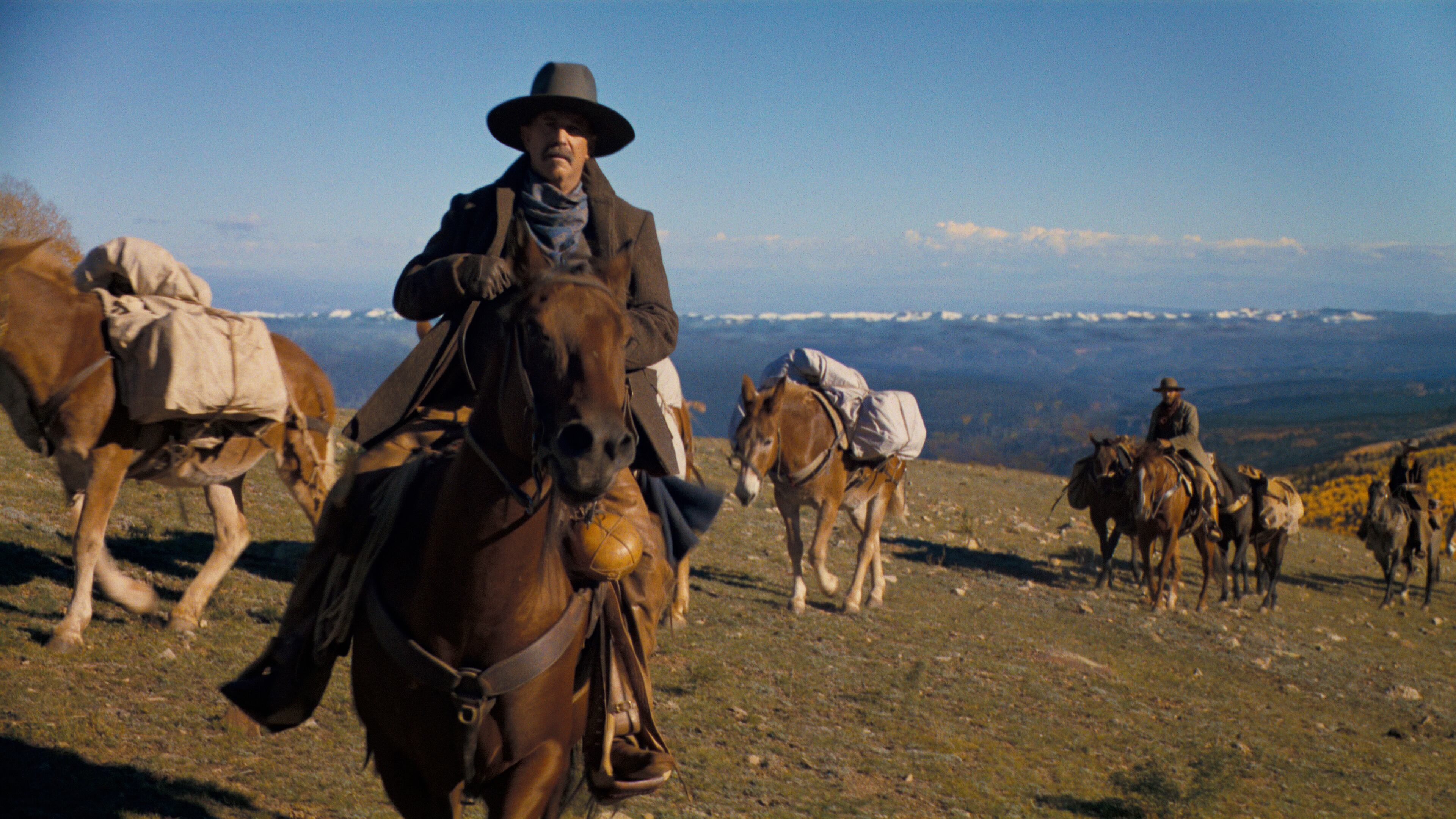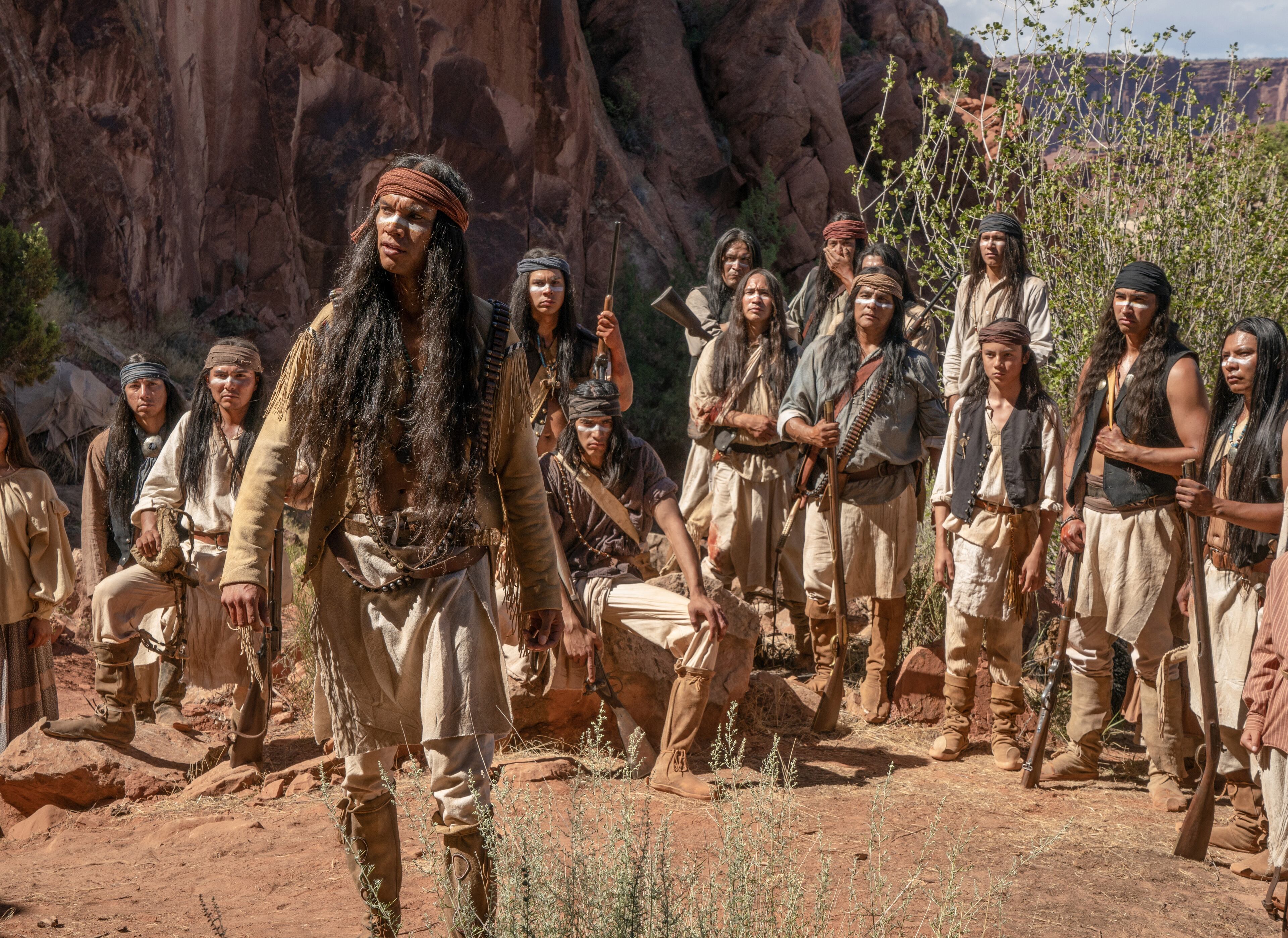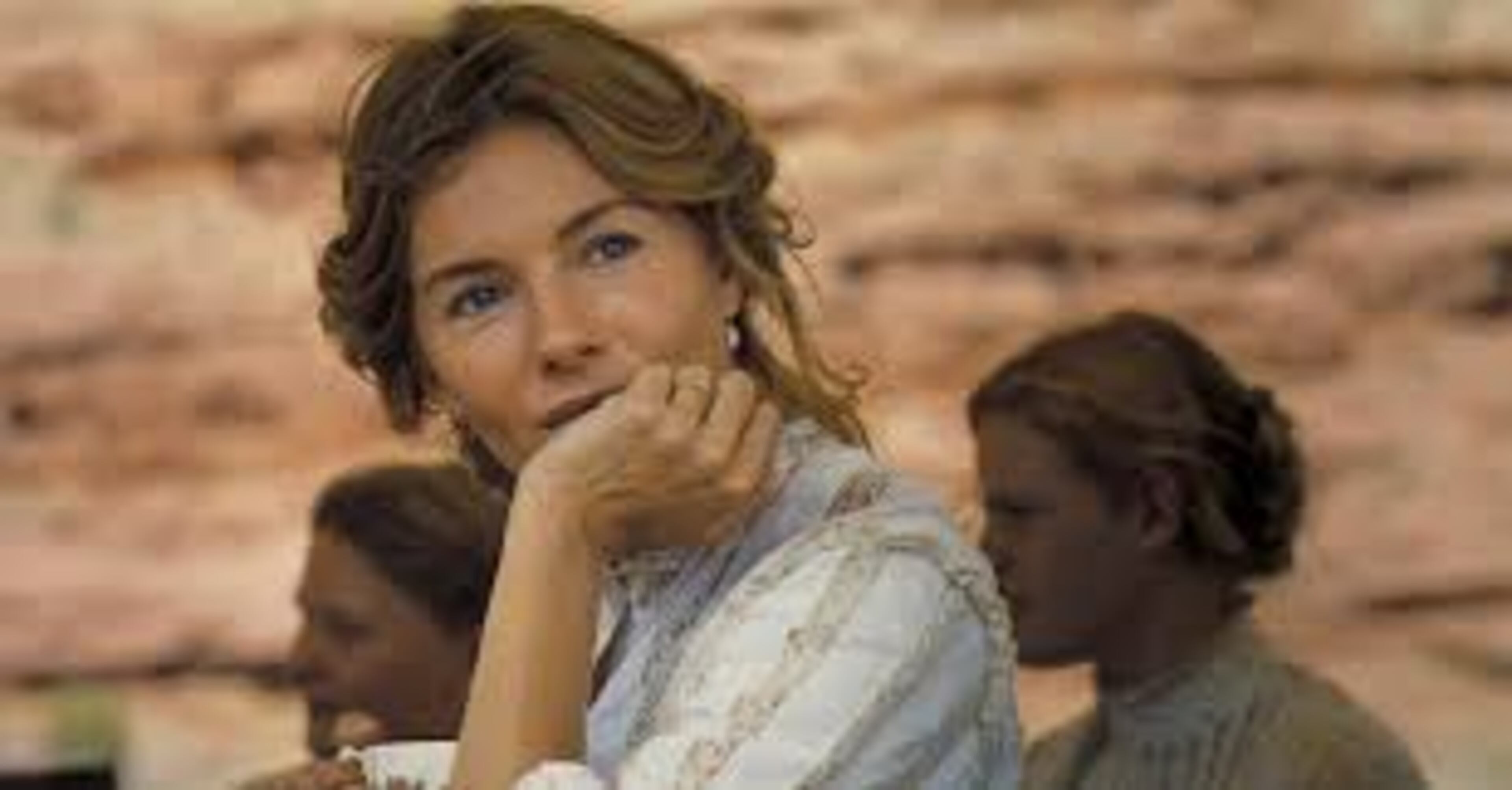Kevin Costner on why he invested $38 million on Western epic ‘Horizon’

When Kevin Costner believes in a project that nobody else does, he has funded it himself. Sometimes, he’s hit it out of the park as in 1990′s Oscar-winning film “Dances with Wolves.” Sometimes, he whiffs as in 1997′s often mocked “The Postman.”
Now Costner’s back in the Western genre again with a grandly ambitious epic dubbed “Horizon: An American Saga,” coming to theaters June 28. It’s a potential four-part film series with Warner Bros. releasing the second film August 16. Costner began shooting the third film earlier this month.
“It’s a powerful story,” said Costner, who funded, produced and directed “Horizon,” in a recent interview with The Atlanta Journal-Constitution at the Four Seasons in midtown Atlanta. He cowrote the screenplay with Jon Baird. “It’s one I made to make people almost close their eyes in the dark and open them and go for a ride. I wish someone had made this movie for me.”
The saga covers the 1850s and 1860s in Wyoming, where promoters are encouraging people to move to a new town called Horizon primarily using flyers. Shot in Utah, the film features a raft of name actors including Sienna Miller, Sam Worthington and Owen Wilson.
“Horizon” is not based on a book. It’s an idea Costner had in the late 1980s that he was never able to convince any studio to create. So he decided to invest his own money into the project. He told GQ that he took $38 million out of his own bank account on top of additional money from two outside investors he declined to identify. (It’s unclear if that $38 million is for both “Horizon” movies or just the first one.)
“It took so long because people don’t buy into something,” Costner said. He is used to being second guessed, noting the skeptics before the release of eventual classic films like “Bull Durham” and “Field of Dreams,” his signature baseball movies.
The result is a sprawling film with multiple storylines, centered around Americans seeking to expand their territory and create better lives for themselves. “Cities don’t pop up like mushrooms after a storm,” he said. “Cities were often fought over and contested.”

The film also shows how the existing Native Americans grapple with this influx of gun-toting outsiders invading their land.
“Indigenous people lived lightly on the land,” Costner said. “The Americans who came in bent the land to their will. Who’s to say which is better? I’m no authority.”
The newcomers in the film show a blend of hope, heroism and violent opportunism in a land where rules were made up as they went along.
In the meantime, Costner said, “many Indigenous tribes thought maybe if they killed enough of them, they’d stop coming.”
They did not.
“We sometimes think of the West like Disneyland or Frontierland,” Costner said. “There was this movement across this country with salesmen trying to sell a place they have never been to. But it was a brutal march from sea to shining sea. There was this ultimate crushing of cultures that had been here for thousands of years on the backs of people who just wanted to build this America in a different way.”

He said he went out of his way to ensure women are prominent in “Horizon.”
“Women are a dominant part of this movie,” he said. “I have my gunfights. But the women are taking care of their families and trying to survive and stay clean.”
Costner, 69, has always been partial to the big screen, which is why he chose to release “Horizon” in theaters rather than turn it into a TV series for a streaming service. “It was meant for cinema,” he said. “You see horses running faster than you’ve ever seen. There are life and death moments. You get to see the rivers, the mountains. The character of America was in the land itself.”
As an actor, Costner doesn’t show up until the second hour of the three-hour movie. He plays Hayes Ellison, a likable but circumspect man who incidentally stops by Horizon, inadvertently gets involved in a murder and feels no choice but to help a woman who goes on the lam.
His relative late arrival in the film “was by design,” Costner said. “We’re just getting our stories going. This is our novel.”
Over the past three-plus decades, Costner has become synonymous with Westerns, solidified by his recent five seasons as John Dutton III on Paramount+’s hugely popular drama “Yellowstone.” But he isn’t planning to come back to that show.
He posted on Instagram last week that while he called it a “beloved series,” his commitment to “Horizon” made it so he was “not going to be able to continue season 5 or into the future” on “Yellowstone.”
Paramount said the second half of season 5 will arrive in November without Costner.
In the meantime, early reviews for “Horizon” have been a mixed bag with a 50% Rotten Tomatoes score so far from critics. The consensus is Costner “doesn’t lack for ambition as he sketches this frontier saga across the widest of canvases, but ‘Horizon’s’ first chapter proves too diffuse in scope for it to satisfy as a self-contained endeavor.”
Early box office pundits think “Horizon” will finish with between $10 million to $12 million in domestic revenue in theaters behind both “Inside Out 2″ and “A Quiet Place: Day One.”
Costner remains unfazed by the naysayers.
“I believe so much in my relationship with people who go to the movies,” he said. “They don’t always want to see the same things. I believe there’s room for all kinds of stories. An American Western will touch people.”
IF YOU GO
“Horizon: An American Saga,” in area theaters starting June 28


